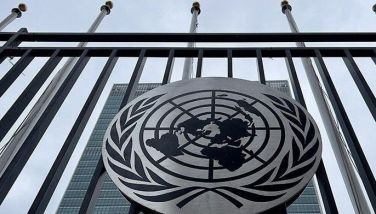Interview: MH370 mystery highlights need for greater regional cooperation
CANBERRA (Xinhua) - The arrival of Chinese air force aircraft to help search for missing Malaysia Airlines flight MH370 in the southern Indian Ocean southwest off Australia will be a welcome but "risky" addition to the international operation, an Australian expert said Saturday.
The search had highlighted the lack of previous cooperation between the forces of the different nations, which could lead to risks "in terms of communications mishaps, in terms of procedural mishaps, in terms of understanding what each other's aircraft is doing," said Dr John Blaxland, senior fellow of the Strategic and Defence Studies Centre of the Australian National University in Canberra.
"This is something that points to the need, I would argue, for greater cooperation in future," Blaxland told Xinhua in his office.
"If there is a silver lining to this dark cloud, perhaps that silver lining is that out of this we will see countries like China, the United States and Australia and Southeast Asia working more closely together on exercises so that they work on their procedures, so they can work to collaborate cooperatively on search and rescue operations like this."
Better mutual understanding of procedures and communications channels would ensure a more rapid and coordinated effort in future, he said.
Australian forces had experience of working closely with US, New Zealand, Malaysian and Singaporean forces, as well as a very extensive relationship with Indonesia, although that was currently "a bit strained."
"We're developing one with China, but it's not nearly as mature and robust as it is with the other partners with which Australia traditionally exercises," said Blaxland.
"There is a prospect here for us, as we reflect on the lessons from this experience, to think about what we do together collaboratively in the region to make sure that we can work together and do work together effectively."
That required regular joint exercises to understand and recognize procedures and protocols and "it's not something you can do just cobbling it together at short notice without a trusted, confident, tested and reliable mechanism for coordination."
"That means establishing protocols for cooperation with Southeast Asian nations through ASEAN perhaps, but also through other powers in the region: China, the United States, Australia and others as well," said Blaxland.
The lack of understanding and the realization of the risks involved possibly explained the initial "reluctance" for cooperation, he said.
"They will, I'm sure, be very professional and they will coordinate their efforts to the best of their ability, but that's always a risky venture when you're so far away from any point of rescue or any point of safe landing," he said.
"This is not near the coast of anything. This is a long, long way away from anything, so for anything to go wrong out there potentially could compound the problem we're already facing."
- Latest
- Trending




























